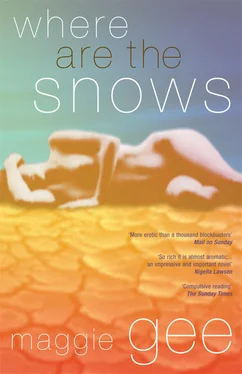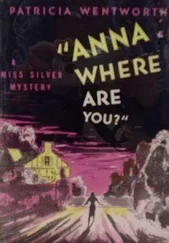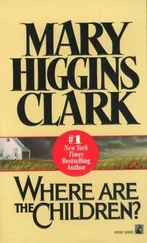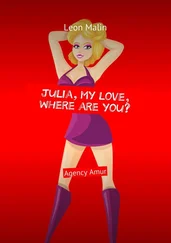I visited my doctors for medication. I took my pills and then visited Christopher, knowing the pills stopped you feeling things; I sat and stared at him, curious; he sat and stared at me, in turn, his face a screen of fleeting emotions, but his words were prosaic, careful, and mine were dull and careful too. Did he want chocolate? Newspapers? Pens? After three of these visits he forbade me to come. The wonderful pills stopped me suffering and helped me sleep and eat.
Benjamin was young, he recovered quickly. Then he wanted me back again. He came and found me, full of hope. And he wanted me back from the frozen north. At his urging I came off the pills. The effect was to make me talk and talk, hours and hours of breastbeating.
Benjamin denied my guilt. He prevented me from feeling what I felt.
Yet what I felt — what I felt —… I know now I was right to feel, I had to feel it — I should have suffered. I was guilty, guilty. Christopher was guilty, but so was I, we were both guilty. But Benjamin wanted so much to love me. He wanted me to deserve his love. And if I was guilty, so was he. Benjamin insisted I wasn’t guilty. He reminded me that he’d fallen in love with me because of my kindness, my gentleness. I was a good person; I’d been good to Isaac. Whereas Christopher had hardly visited his son. He was obviously an uncaring father; more to the point, he was a maniac…
In the end I listened to what Benjamin told me. He told me what I wanted to hear. I didn’t want to die of guilt, and shame. I didn’t want to think of myself as a killer.
I told myself all sorts of nonsense as life began to return to my body. I had a right to happiness, I had a right to find myself (yet I’d travelled the world for nearly two decades; I should have found myself by then…)
We would go away together, just the two of us. Anywhere in the world to escape. We’d find another life where everything was light. Freedom, freedom. We were going to be free…
It reminded me of something a long time ago, and the memory was certainly a happy one, so why did I feel such terrible sadness?
We waited for the trial, in any case. The newspapers had fun with us. Isaac’s was the famous name, not ours; the shorthand for him was AIDS ART KING. We were of interest as his adulterous parents. How quickly we slip into the past! Why hadn’t we realised how well-known he was? Perhaps he had hinted, and we hadn’t listened.
Christopher Court, of Islington, London, England, but actually of no fixed address, was charged with malicious wounding and murder. (Did anyone really think he meant to kill her? Why would he have bothered to murder her?) Deals were made; dollars were paid, immense amounts of money to improbable lawyers who looked and talked like film actors.
Christopher appeared looking pale and distinguished, thinner, older than before, surely too delicate to wound or murder — surely too old to be a husband for me?
The charge was changed to manslaughter. His previous good character was adduced, though it’s hard to find witnesses to the good character of someone who’s spent the last two decades travelling. (It made me think, even then. Had anyone cause to stand up for us? Had we done any good to anyone? Mary and Matthew would have obliged, but we’d lost touch with them; we’d lost them.)
I think I gave evidence to his good character, or else to my bad character, which meant the same thing — as I’ve said, after twenty-six years of marriage, everything comes down to the struggle between you.
Benjamin wanted to escort me to court; I pointed out that this was madness. As it was the cameras never stopped clicking on days when I had to be in the dock. I had to resort to the pills again. There were photos of me looking rich and disdainful; I was still a beautiful redhead to the papers.
It’s thanks to the papers that I know that Consuela Harbert’s family were in court every day. She had six children; she had told me so; I remember with pain how I envied her. I remember the blind fourteen-year-old daughter.
It may have been one of Consuela’s kids but it wasn’t the blind fourteen-year-old who spat at me one day as I clicked up the steps to the courtroom, numb but dressed in my best, and hit me full in the face at close range with what felt like a jugful of warm saliva… pills don’t protect you from everything.
‘The day the trial ends, we’re leaving,’ I vowed.
I thought, I will do nothing scandalous, ever again, nothing that might make me famous, or hated, nothing that might make another human being spit. With Benjamin I could be ordinary. Benjamin wanted a wife and a mother; I wanted a child and a new young husband, though I didn’t actually mean to marry him.
I wanted to forget the imprisoned and the dead, I wanted to forget that I had been spat at, I wanted to forget Susy’s terrible face, turning me to stone as she stared her hatred through the frozen seas that concealed Isaac’s coffin…
Five years later, her face is still with me. And the thing that was beginning with Benjamin, the life that was so full of sap and hope, is dead and shrivelled like the rest. And all the years I was with him I was trying to shut out the memory. The one memory that matters absolutely. The moment when we killed someone…
Why am I able to face it now, even though the pillow is soaked with tears, even though my whole body aches for some drugs that will take away the pain and terror? They’re on the bedside table, but I think I can resist them.
Something to do with Anna Maria. Some mysterious gift she left behind. Though I’m torn with longing when I think of her, though I’d give up everything to have her back, here in the bed as she slept before, whimpering softly as she dreamed of home — though half of me feels nothing but sorrow and hunger, the other half is glad that we took her back. Proud that we took her back before we killed her. Proud, I suppose, that we didn’t kill her. Proud that we could give her up.
Not much to be proud of, is it?
I wish I could talk to Christopher.
Becky is placid, pink and round, with a little cap of soft brown hair, getting thicker now, ragged at the edges, sticking out like feathers.
When she was born she was practically bald. There was a sort of swirling pattern of dark hair on her red wrinkly scalp, and Phil looked at it and said it was like magnetised iron filings, but they weren’t filings, they were little threads of duck-down. When she was born she was incredibly tiny. Six pounds four ounces, the size of a bird, a chicken, perhaps, or a large pigeon, warm as the breast of a nesting bird. She was bird-boned, our darling little Becky, she lay light as a bird along Phil’s arm, her head in his hand, like an egg in an egg-cup, her tiny toy feet in the crook of his elbow.
The first time she heard her father’s voice she just stared at him, she looked amazed. She opened her tiny toothless mouth, opened her blue eyes very wide and stared. We’d talked to her all through pregnancy, so she knew his voice already, you see. The only other person she stared at was me. We were her parents. She was our daughter. We all belonged. We belonged to each other. I’d never felt — what do I mean? I’d never ever felt complete before. Completely at home. And at home in the world.
Becky is six months old. I’ve kept her alive for six whole months! She seems so big and solid, now. She isn’t, actually, she’s normal weight, but I feel so proud of having helped her grow from that beaky little scrap to a dimpled baby with nice round cheeks and chubby wrists and ankles.
Those six months seemed full of incredible dramas, the biggest dramas of my whole life. Everything else in the past and future pales beside what I’ve just lived.
Читать дальше












